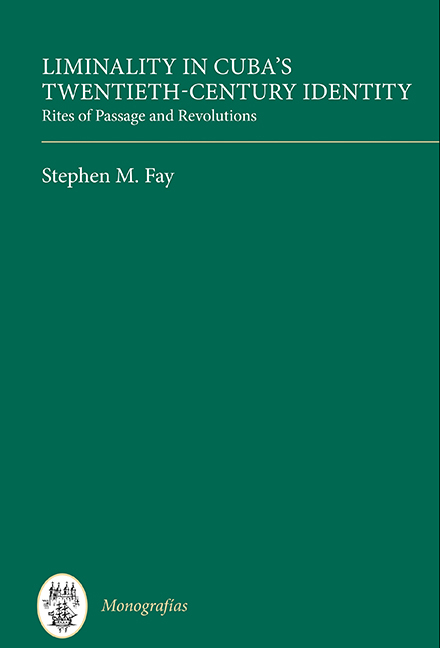Book contents
Chapter 7 - 1965: Post-liminal Cuba?
from PART II - 1953–1965
Published online by Cambridge University Press: 14 September 2019
Summary
In this examination of pivotal periods in Cuba's twentieth century, in which the fisonomía of the age was marked by an acute and often anguished re-cognisance of collective identity, 1965 may seem like an unusual conclusion: in the first mercurial years of the 1960s, other dates seem to stake stronger claims for obligatory exploration as peaks of transcendental activity and self-analysis. In March 1960, for example, the merchant ship La Coubre, that was bringing armaments from Belgium, was torn apart by a catastrophic on-board explosion that killed seventy-five. Just as the sinking of the USS Maine in 1898 (only a few hundred yards across Havana harbour) had heralded the beginning of the end of Spanish colonialism, so the destruction of La Coubre provoked a significant swing in collective sensibility away from the improvisation and contingency of the early years towards a more steely mood of mute resolve, with Sartre (who was in Havana at the time) reporting the cancellation of the annual carnival and the channelling of all organisational energies towards ‘una colecta nacional para comprar armas y aviones’ (1960: 243). In terms of transcendence, however, 1960 was but a prelude to the events of 1961, in which Roig de Leuchsenring's prediction of chronological acceleration seemed to come true as Cuba lived ‘lustros en meses, meses en instantes’ (1961: 348). Although the cause of the explosion on La Coubre was never irrefutably proved (in a further eerie echo of the Maine), suspicious eyes turned towards the increasingly hostile northern neighbour. Since Castro's tense April 1959 visit, relations between the United States and Cuba had descended quickly towards non-diplomacy. Loath to tolerate a radical nationalist revolution just ninety miles from its southern shores, the US sought to make its hemispheric hegemony felt by drawing a mercantile noose around Cuba to throttle the island's attempts at self-determination: in May 1960 US-owned refineries on the island refused to process recently-arrived Soviet crude oil, Cuba responded by taking them over, the US retaliated by limiting Cuba's all-important preferential access to the US sugar market, Cuba replied by nationalising foreign-owned sugar mills. In a matter of months, the special relationship at the core of Cuba's foreign policy for more than half a century had turned sour. Consequences came almost immediately.
- Type
- Chapter
- Information
- Liminality in Cuba's Twentieth-Century IdentityRites of Passage and Revolutions, pp. 181 - 214Publisher: Boydell & BrewerPrint publication year: 2019



